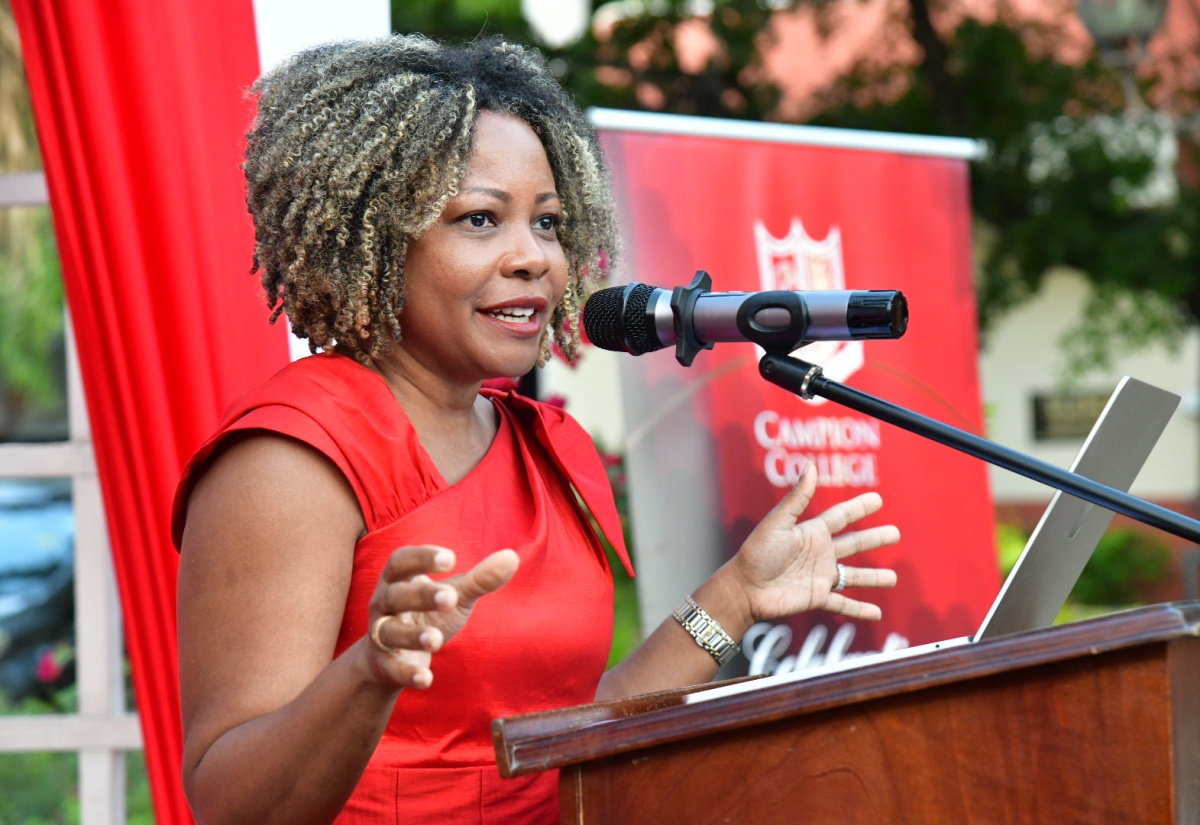Minister Says Tackling Food Insecurity is Key to Increasing Equity in Education
By: , January 13, 2025The Full Story
Tackling food insecurity is key to increasing equity in education, says Minister of Education, Youth, Skills and Information, Senator Dr. the Hon. Dana Morris Dixon.
“Learning while hungry is extremely difficult. Addressing food insecurity is a critical component of any strategy aimed at attaining equity in our education system. Many studies show that brain development in the early years is linked to nutrition. We also know that concentration and even behaviour is affected by nutrition and, in turn, if you don’t have adequate nutrition, it can lead to sub-par learning outcomes,” she said.
Dr. Morris Dixon was delivering the main address at the annual Archbishop Samuel Carter Lecture, held at Campion College on January 9, under the theme ‘Pursuit of Excellence and Equity in Jamaica’s Secondary Education System’.
Some $8 billion is spent annually to support school-feeding initiatives, which benefit more than 30 per cent of students.
Dr. Morris Dixon welcomed the ongoing review of the Programme of Advancement Through Health and Education (PATH).
“I worry about those who are not on PATH, but still live in food insecure environments, and there are a lot of those, so I am very supportive of the work that’s currently happening to relook PATH, to relook how persons enrol into PATH and the criteria for being accepted into the PATH Programme,” she said.
The Minister emphasised that when families struggling with poverty receive effective help with meals, fees and supplies, the question of leaving school prematurely is more likely to be removed.
“Proactive measures ranging from bursaries and stipends for transportation to purposeful inclusion of students with physical, learning or behavioural impairments allow every young person to bring their fullest selves to the classroom,” she said, adding that efforts must be made to eliminate as many of the financial burdens that lead families to choose to keep their children at home as well as work to reduce truancy.
Meanwhile, Dr. Morris Dixon said excellence and equity are two words that represent both the aspirations and the challenges within Jamaica’s secondary education system.
“Excellence calls for us to ensure that our schools are nurturing the intellect of our children, fostering innovation and preparing students to thrive in a competitive globalised world. Equity, on the other hand, compels us to ensure that no child, regardless of their circumstances, is left behind. These are not competing goals; they are complementary and together they form the cornerstone of a just and transformative education system,” she added.
The Minister underscored that although the majority of children have access to primary and secondary schooling, Jamaica has a severe learning crisis on its hand, as too many of the students at the end of primary school remain illiterate and innumerate, and many leave secondary school with no marketable skills or certification.
“It is not something that we can ever be proud of. It’s an indictment on all of us in our country. Access alone is not enough. Access has to be matched with this concept of equity and equity is not about sameness of outcomes; it is actually more associated with similarity in the opportunity that you provide,” she said.




